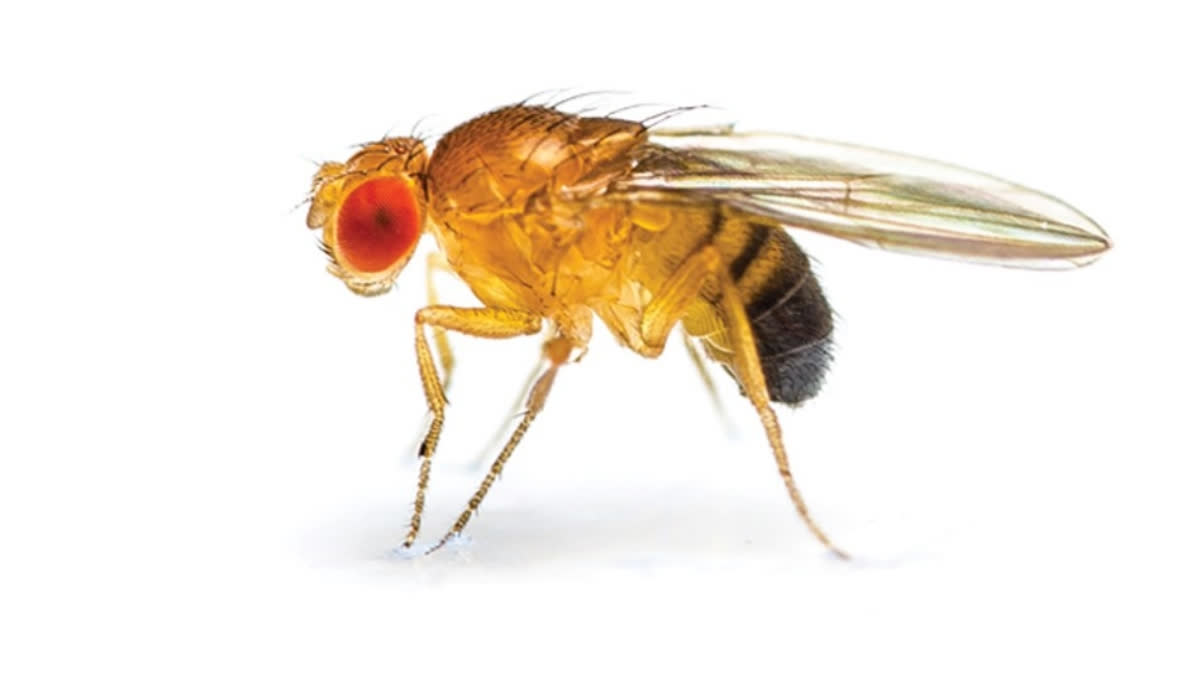Bengaluru: Owing to higher calcium secretion through bone loss in space with acidic urine, prolonged periods of eating dehydrated foods and decreased urine volume, astronauts become more vulnerable or at a greater risk of developing kidney stones. Hence, there is a need to understand the molecular mechanisms of kidney stone formation in space and better treatment countermeasures are necessary for lessening the risk of kidney stones.
In this context, the University of Agricultural Sciences (UAS)-Dharwad and the Indian Institute of Space Science and Technology (IIST)-Trivandrum, Kerala, have selected fruit flies for a biological experiment as part of ISRO's Gaganyaan Mission, scheduled for launch next year. The fruit flies, scientifically known as Drosophila melanogaster, are commonly found in bananas. One of the mission's payloads will include a study titled 'Understanding Kidney Stone Formation in Space Using Fruit Flies: Relevance to Astronaut Health.'
This study could pave the way for advancements in food preservation and health protection for astronauts in space. It also aims to find solutions to health issues like bone decay and kidney stones, which can impact astronauts during space missions.
The research project is being executed in collaboration with the IIST-Trivandrum and UAS-Dharwad where these fruit flies will be sent to space on the Gaganyaan Mission. For this purpose, IIST has designed a kit made up of 20 fruit flies (an equal number of males and females). The kit was prepared after one year of effort and all of it was designed and developed by IIST. The total project cost is Rs 78 lakhs and is supported by ISRO.
Ravikumar Hosamani, the former researcher at NASA Ames Research Centre, California, and the assistant professor at the Department of Biotechnology of the University of Agriculture Science (UAS), Dharwad, is jointly leading with IIST in this research study project. He, along with his team, won accolades for this innovative model.
In a candid interview, Ravikumar Hosamani spoke in detail about the project and said that the flies will breed and they mostly feed on a mixture of semolina and jaggery mixed with sodium oxalate, which is a chemical-containing stones-forming diet. While talking about the benefits of this programme, he said, "This study would be beneficial to know the difference between kidney stone formation in astronauts. At later stages of development, this will serve as a countermeasure to combat this issue."
This approach will then be tested in mice models and used in drug discovery studies. The model system will aid in understanding various diseases through simple organisms that reproduce quickly.
Hosamani completed his PhD at CFTRI in Mysore and worked at NASA's Ames Research Centre in California for nearly seven years. During this time, he regularly conducted similar experiments aboard NASA's International Space Station (ISS).
Later, he became a research faculty at NASA Centre. He said his lab specialised in sending these fruit flies to the ISS and conducted four flight experiments. Through these experiments, he and his research team tried to understand different biological processes and difficulties encountered by the astronauts in space like how the brain responds in a reduced gravity environment, and how, heart function and structure change while going to the space station. In 2017, Ravikumar joined as an assistant professor at UAS Dharwad. When the Government of India called for proposals for the Gaganyaan Mission, IIST and UAS-Dharwad approached ISRO with the fruit fly project.
Talking about his vision for the Gaganyaan project, Ravikumar said, "Space biology is a new phenomenon in India and hardly any people are working in this area of research. ISRO is supporting it now. However, it's a well-established research area in the Western world like in NASA and European states. Buoyantly this project is going to be first-of-its-kind and the idea is to initiate this niche area of research in India."
Hosamani elaborated on the fruit flies that are going to be part of the Gaganyaan programme and said that owing to the lack of gravity, bone and muscle loss will be there and calcium also leaks out, which gets deposited in the kidney and eventually forms the stone in the organ. So, astronauts are very vulnerable to kidney stone formation in space. In this research project, how kidney stone formation is different from Earth in space, will be studied.
While replying to a question about why fruit flies were preferred for this project, he said that fruit flies are known for their physical structure, which is similar to that of humans. The changes that occur in these flies under zero gravity are expected to provide valuable insights for future manned space missions.
With 77% gene homology related to human diseases, a short lifecycle and low cost, Drosophila melanogaster offers significant advantages. Notably, the organ of the fruit flies, i.e., Malpighian tubules closely mimic the human kidney in genetic composition, function and structure, making it an excellent model for studying and quantifying kidney stone formation.
Therefore, Drosophila Melanogaster is utilised to investigate kidney stone pathology under short-duration spaceflight conditions, he added. Dr Hosamani further stated that the Gaganyaan space vehicle orbits the earth in zero gravity at low earth orbit around 400 km from the earth's altitude. It is planned to go around the Earth for three to five days before returning and will fall back to the coast of Gujarat eventually. Later, scientists will closely monitor the changes in the sample kit during this period.
Prof PL Patil, Vice-Chancellor UAS-Dharwad, informed that specialised hardware would be created for conducting Drosophila experiments in space, including fruit flies’ vials. Upon their return to earth, we will dissect the Malpighian tubules of the flies-structures that are similar to human kidneys for further analysis in collaboration with the IIST team."
Read More



